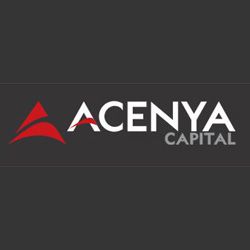Investing in real estate is a great way to diversify your portfolio. Whether you have extra money to invest after investing in stocks and bonds or want something not related to the stock market, Roofstock is a great place to start.

Roofstock is a marketplace for real estate investors. It works differently than most real estate platforms and helps beginner and experienced real estate investors realize profits from investing in real estate.
Real estate is a great way to diversify taxable and tax-deferred portfolios. Whether you’re trying to grow your self-directed IRA or you want real estate to be a part of your taxable portfolio for your short-term goals, Roofstock may help you achieve your goals.
In this Roofstock review, we cover everything you need to know about Roofstock and how it works.
What Is Roofstock?
Roofstock is a real estate marketplace that lists homes already outfitted with tenants, ready for investors to buy. With renters in the house, investors earn cash flow right away. You don’t have to worry about fixing the property up and finding tenants – they are already there. Roofstock does the legwork for you. All you have to do is choose a property and buy it.
Roofstock lists only single-family properties that are already certified, meaning they will only sell legit properties ready for tenants right out of the gate. Roofstock does the research and ensures properties are a reasonable risk, which is half the battle in finding the right investment property.
Roofstock doesn’t own the properties – individual sellers do. Still, Roofstock works as the intermediary between you and the seller, handling all administrative work from start to finish, all for a low commission fee.
Once you own the property, it’s your responsibility to maintain it, manage the tenants, and ensure profitability.
Our Roofstock review helps you understand if Roofstock is legit, the platform’s pros and cons, and how much it costs buyers and sellers.
Is Roofstock Legit?
Roofstock has had more than $2 billion in sales, and its properties have between a 6% – 10% cap rate. Roofstock took advantage of technology, making buying investment properties a seamless process for investors.
Roofstock makes the search and research part of buying investment properties much more streamlined. Investors go to the marketplace, put in their search parameters, and see the homes available to them.
There’s very little legwork involved for investors but plenty of profits.
Is Roofstock Safe?
Roofstock is safe. They even offer a 30-day money-back guarantee, which is nearly unheard of in the real estate industry. There’s no guarantee you will get your money back, of course, but it’s nice knowing the opportunity exists.
If Roofstock were to go out of business, you would be unaffected if you already own the homes you bought through them.
It’s similar to use a real estate agent to buy a home. Once you own the property, the real estate agent doesn’t have anything to do with it.
Is There a Roofstock App?
Unfortunately, Roofstock doesn’t have an app. Their website, however, is mobile-optimized, so you can get the information you need while on-the-go.
How Does Roofstock Work?
Roofstock is a crowdfunding platform, but it doesn’t work like the traditional crowdfunding platform. A typical crowdfunding platform pools investors’ money to help real estate developers and investors buy properties.
With Roofstock, you buy the properties yourself, realizing 100% of the profit – you don’t have to share them with other investors.
The properties you find on Roofstock Marketplace are similar to turnkey properties because they come with tenants already. Investors don’t have to do the legwork typically involved in finding properties and tenants – the work is done for you. The properties are even certified, which means they meet Roofstock standards and should provide a decent return on your investment.
Investors can also sell properties on Roofstock. The process is simple. You submit your listing after answering questions about the property and uploading pictures. Roofstock performs its due diligence by inspecting the property, pulling title reports, and doing other research to ensure the property is ready to sell to investors.
Roofstock professionals work with you to determine the right asking price. While the final listing price is in your control, Roofstock will help you determine an attractive price based on market data and the home condition.
Once listed, buyers contact you via the Roofstock platform. You manage your offers on the platform, and once you accept them, Roofstock handles the closing process.
It takes 30 days from contract signing to closing in most cases.
Who Should and Shouldn’t Use Roofstock?
Anyone interested in investing in real estate could use Roofstock. You don’t need to be an accredited investor, but you need to be eligible for financing to buy the property if you don’t have the cash to pay for it in full.
Like any real estate investment, though, consider the pros and cons carefully. There’s no guarantee when you invest in real estate.
Most investors buy properties on Roofstock Marketplace sight unseen. If this is your first real estate investment or you’re not comfortable buying properties without seeing them, Roofstock may not be the best option.
Pros and Cons of Roofstock
Pros
- You don’t need to be an accredited investor to buy a property on Roofstock. Anyone can invest in a Roofstock property if you have the cash or qualify for financing.
- The properties already have tenants in them. You don’t have to go through the hassle of looking for tenants, and the property has cash flow from the date you own it.
- Roofstock has hundreds of deals a month. It’s a qualified crowdfunding platform that makes it easy for investors to find excellent properties.
- Investors own the property 100%, unlike traditional crowdfunding. This means any profits earned are 100% yours.
- Investors don’t have to worry about making improvements. The homes are certified ready for tenants. You don’t have to worry about fixing up the property.
- You can close in around 30 days. Each situation differs, but on average Roofstock purchases close in 30 days.
- Roofstock properties have a 5% to 8% cap rate, and most investors have a gross return of around 11%
Cons
- Real estate is an illiquid investment. If you need your money, you must either refinance the property to tap into the equity or sell the home. Neither process happens overnight.
- You’ll need more money than the initial cost of the home. As the owner, all repairs, renovations, and other expenses fall on your shoulders.
- You must manage the property yourself or hire (pay for) a property management service. This takes time and eats at your profits. Tenants expect issues fixed right away too.
- Most lenders require a hefty down payment to qualify for financing. If you don’t have the cash to buy houses outright, you’ll at least need 20 – 30% of the purchase price to invest.
Roofstock Features and Offerings
Let’s look at Roofstock’s features to see if it’s right for you.
- No membership fee – Roofstock doesn’t have a membership fee. Anyone can search for and buy properties on Roofstock Marketplace. There are fees when you buy a property, which we discuss below.
- Custom search options – Searching for a home on Roofstock is easy. You can set custom filters based on the price, location, and even desired returns. In the advanced settings, you can search by many more filters, narrowing down your search considerably.
- View pictures and plans – Roofstock provides more than pictures. You can view floor plans and take 3-D tours of potential homes. Roofstock offers financial analysis, potential returns, and other interactive tools to help you make buying decisions.
- Free offers – You can submit an offer for free. When a seller accepts your offer, you pay a fee.
- No time commitment – You aren’t obligated to hold a property for a certain amount of time. Once you buy the property, it’s yours to manage. While keeping the property is ideal, as you’ll earn greater cash flow, if you need to sell quickly, Roofstock doesn’t prohibit it.
- Pre-vetted properties – Roofstock does all the property vetting. All you have to do is look at the pictures, plans, and analyses offered by Roofstock to ensure the property is right for you. If it has Roofstock certification, it’s typically a solid buy.
- 30-Day Money-Back Guarantee – If you aren’t happy with the purchase and tell Roofstck in writing in 30 days, they will relist the property. If they can’t sell it within 90 days, they will buy the property from you.
- Roofstock One for accredited investors – If you’re an accredited investor, you can buy shares of rental properties’ home equity equal to 1/10th of the equity. Roofstock handles all maintenance and repairs, but you earn a prorated amount of the profits.
- Roofstock retains at least a 10% equity ownership in each property in Roofstock One – If you own at least 90% of the shares in a Roofstock One property, you can convert your shares to buy the property after six months. If you own less than 90%, you can liquidate your shares after six months.
Roofstock Fees and Pricing
Like any investment platform, Roofstock charges fees. While they are reasonable, you should understand the total cost before investing.
What Is the Minimum Roofstock Investment?
If you’re buying a property on Roofstock, there is no minimum investment requirement. You’ll pay the price of the home. If you’re an accredited investor investing in Roofstock One, the true real estate crowdfunding platform, the minimum investment is $5,000. This ensures you’ll invest in at least 1/10th of a property’s cost.
How Much Does Roofstock Cost?
Roofstock charges a fee only when you make an offer, and it’s accepted. The cost is 0.5% of the sales price or $500, whichever is higher.
How Does Roofstock Make Money?
Roofstock makes money from both buyers and sellers. Even though anyone can use the marketplace for free, there are fees:
- Sellers pay a 2.5% commission fee to Roofstock to sell their property.
- Buyers pay a 0.5% commission fee to Roofstock when they buy a property.
Even though this sounds like a lot, total between buyers and sellers, Roofstock charges half of the normal real estate agent commissions.
Is Roofstock a Good Investment?
Roofstock is a great way to invest in real estate. Whether you’ve invested before or this is your first stab at real estate investments. Our Roofstock review showed the pros and cons of the service. Still, overall, it’s an excellent way for anyone to diversify a portfolio with real estate while knowing the property is a good option with tenants already in it.

 Hot Features
Hot Features











